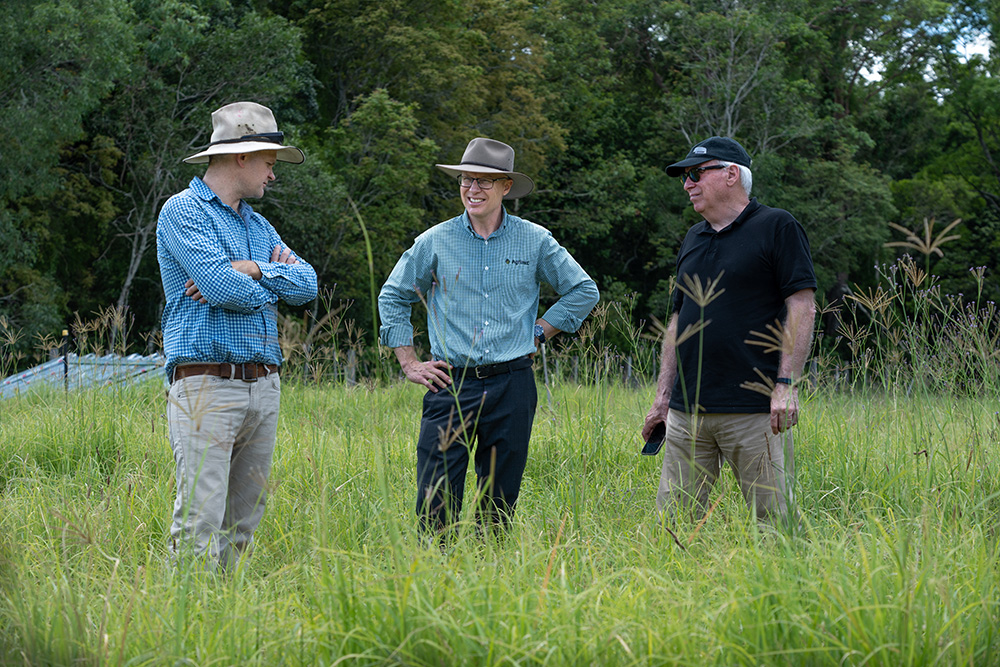Farmers could soon access low-cost carbon soil data to inform their land management, and potentially earn carbon credits with a fully integrated, measurement system using CO2 flux, remote sensing and carbon models being developed by QUT and Agrimix, a leading agriculture technology company, thanks to a $3.2 million Commonwealth Government grant.
- 24/7 soil carbon measurement system may replace expensive soil testing
- System encourages and gives feedback on effective land management practices
- Cost target of about $3 a hectare for real-time monitoring of carbon flux
- Vital information for farmers to increase productivity and carbon credits
QUT soil scientist Professor Peter Grace, from the Centre for Agriculture and the Bioeconomy, said the research and infrastructure for the project was well established and the grant would enable development of fully integrated measure-model-verification (MMV) technology that would provide accurate soil carbon measurements and the ability to predict soil carbon change.
"Together QUT and Agrimix have 17 existing flux towers across Queensland and northern NSW and QUT has also been publishing soil carbon models for decades," Professor Grace said.
"With this funding, an additional fleet of portable CO2 flux towers and IoT (Internet of Things) sensors will capture the diversity of soils, climates and management strategies. They will be deployed for three to six months to provide in-fill data for soil carbon model calibration, validation, and verification.

"Carbon dioxide flux is a proven physical measure to calibrate and validate a soil carbon model's accuracy, overcoming the inherent errors and expense associated with soil sampling and analysis.
"Flux towers integrate information of carbon flows across a landscape – plants take up CO2 during the day and plants and soil emit CO2 at night.
"By putting all that information together using simulation models we can tell farmers how their practices will change soil carbon.
"We are targeting $3 per hectare a year to provide this vital information using integration of CO2 measurement, critical biomass remote sensing, and soil carbon models.
"By the end of the project, the integration of the tools and platform will be developed and demonstrated on multiple farms and be ready to scale up for industry rollout in Australia and abroad."

Agrimix CEO Ben Sawley said one of the major outcomes from this project is that it could help farmers measure their carbon footprint in a certified manner through the Clean Energy Regulator.
"With this knowledge, farmers can take action to reduce their carbon footprint to earn carbon credit income or use carbon credits to ultimately produce a carbon-neutral product," he said.
"In a future where the size of a farmer's carbon footprint becomes important for buyers of their products, this solution will be very important.
"Improved land management through a focus on soil carbon for soil health will increase overall productivity and profitability for farmers and provide resilience to adverse conditions such drought."






